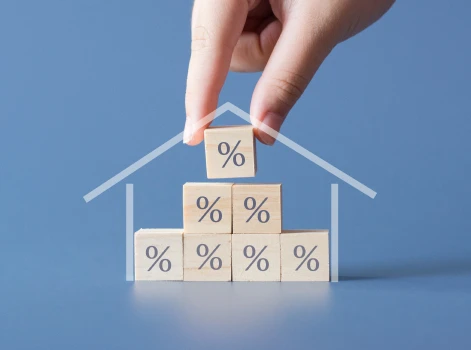Increasing your home loan is a smart way to borrow additional funds against the same property for many purposes. You can increase your mortgage amount if your existing lender considers you eligible.
Equity Release
Home equity equals the difference between the current market value of your home and the total loan outstanding. You need to have sufficient equity available in order to access it. If you qualify, you can access all or part of your equity to finance personal and investment property-related borrowings. There are two kinds of equity release available:
Top Up
A loan top up combines your existing home loan, and new loans taken against the same property, into one. Your loan account remains the same, so the loan term, interest rate and repayment cycle do not change. The only change is an increase in the repayment amount.
Split
A loan split divides your existing home loan, and a new loan taken against the same property, into two separate accounts. As you will have a new account for the new loan, you can apply for a different loan term, interest rate and repayment cycle for that loan. Unlike in a loan top up, you will have to make two separate repayments.
Reasons For A Home Loan Increase
Below are the most popular reasons people make a home loan increase.
Renovations
You can apply for a home loan increase to fund a major renovation project. When assessing your application, your lender may require the following:
- Copies of the building plan
- Building contract/quotes
- Council consent in written form
- A revaluation report for the property
Depending on the loan amount, type of renovation and Loan-to-Value Ratio, you may also be able to cash out some equity for the project.
Debt Consolidation
You can combine two or more credit-card loans or personal debts by consolidating through a home loan increase.
Consolidating all your debts under a single mortgage helps avoid making multiple repayments on various cycles. Mortgage interest rates are also much cheaper than rates on most loans, and you’ll avoid making multiple interest payments.
Example: Suppose you are paying an interest rate of 2.5% on your home loan and 7% on your car loan. If you increase your home loan to pay off the car loan, you will be paying 2.5% on your car loan amount, instead of 7%, potentially saving thousands of dollars.
Debts You Can Consolidate Under A Home Loan Increase
- Personal debts
- Car loans
Debts You Cannot Consolidate Under A Home Loan Increase
- Business debts
- Living expenses
New home
With a home loan increase, you can:
- Purchase a new property
- Pay the deposit and stamp duty for a new property
Other Investment
Banks grant investment-income home loans and loan increases related to dividends from ASX-listed companies. You can apply for a home loan increase if you require funds to invest in shares that provide dividend income.
How Is A Home Loan Increase Different From Refinancing?
You refinance your home loan if you want to change the terms or get better interest rates. Although one can refinance a home loan with the current lender, most people prefer refinancing with a different one.
A home loan increase with your current lender does not change your loan terms and sticks to the current interest rate, unless it is a split. You can refinance your home loan with a different lender and apply for a loan increase at the same time.
Most borrowers do not know the difference between a home loan increase and refinancing. Both allow you to consolidate your loans but they are quite different in most other ways.
Benefits Of Increasing Your Home Loan
Here are some of the advantages of increasing your home loan.
- You pay a single interest rate for all the loans you have consolidated.
- If your financial situation has not changed from the time you took the home loan, your loan increase application will probably be approved, unless the lender has made significant changes to its terms and policies.
- A loan split will allow you to have a different loan term and a better interest rate for your new loan.
- A top-up keeps all your loans under the same account.
Disadvantages Of Increasing Your Home Loan
The approval process for the increase is similar to the original mortgage application process and you’ll need to go through the entire thing, which can be tiring.
If your financial situation has changed for the worse since you took out your home loan, your application for an increase may be rejected, leaving an enquiry on your credit file. This can hurt your ability to apply for another loan in the future.
A home loan’s term is usually 30 years. The terms of most other kinds of loans are much shorter. So, for loans consolidated into the mortgage without creating a split account, you’ll make interest payments on those amounts much longer than you would otherwise.
Note: You cannot make a home loan increase if you are an expat or have a guarantor home loan
Are You Looking to Increase Your Home Loan?
Home Loan Experts’ team of mortgage brokers will check your equity and loan serviceability to see whether you qualify for a home loan increase. We will submit your application only after making sure it will be approved.
If you are looking to increase your home loan through a fast and efficient process, call us on 1300 889 743 or complete our free assessment form to speak with one of our mortgage brokers.
